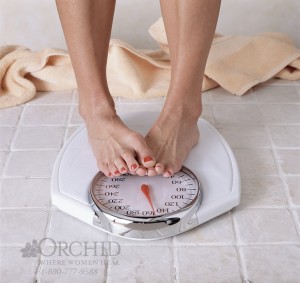Is Weight the New Equalizer?

Shaming overweight and obese people does not encourage them to lose weight; in fact, it might lead them to putting on more weight, researchers found in the journal Obesity this year.
What’s more, overweight women suffer more than just emotionally; their paychecks suffer, too.
If you are overweight, and especially a woman, people, in general and employers, in particular, expect you to hide. That is, if a woman is overweight, employers are less likely to choose her for promotion and therefore the higher-wage jobs when they involve interacting with the public.
Data from new study by Jennifer Shinall, assistant professor of law at Vanderbilt Law School, shows that women who are overweight are more likely to make less money than people of ‘normal’ weight and, what’s more, overweight women earn even less than overweight – or even obese – men. And it has nothing to do with a woman’s level of education.
“I controlled for education in my study,” says Shinall. “What is going on is being driven by the employer side of the equation; by employer preferences.”
Systematic discrimination in the employment market can have a real, measurable and negative impact on the many decades that will follow women throughout their lifetime.
Being thin, it seems, is an unspoken requirement if you want a better paycheck. And financially speaking, the thinner you are, the better you fare. However, if you are considered to be on the heavy side, you suffer as a result, as a 2011 study made clear: overweight women earned $9,000 less than women of average-weight; very heavy women earned $19,000 less. On the other hand, women who were considered to be very thin earned $22,000 more than women who were deemed average.
Is Weight the New Equalizer?
Of course, those results are far more prevalent and obvious when it comes to women’s earnings; men do not experience this same discrimination based on appearance.
About half of male CEOs are overweight, but only 5% of female CEOs are heavier than average.
“They don’t want an obese woman to be the face of their company or the person their clients interact with,” Shinall speculates.
Nowadays, some employers won’t even hire overweight women at all. Or, they will fire them at-will if they appear to gain even a few pounds.
One study shows this. Weight bias begins to rear its ugly head against women when they are only a few pounds above their ideal weight; for men, they can gain far more weight before it becomes a problem for them with respect to the workplace.
For example, a woman who is 5’5” begins to experience this bias when she is only 13lbs above what the BMI charts show to be the highest end of her healthy weight. At that point, her BMI is still only 27 and she is still within the range of today’s “average” American woman.
Where it’s clear that obese men get better treatment, there is no scenario where being overweight is an advantage for a woman – or even where it puts a woman on an even playing field relative to her overweight male counterparts.
Indeed, weight discrimination seems to be on the rise.
Eating disorders and substance abuse often go hand-in-hand. In fact, some women begin abusing drugs because of unhealthy body image and self-esteem issues, in order to lose weight. If you are struggling with an eating disorder, substance abuse issue, or drug addiction, please call toll-free 1-800-777-9588 to speak directly with an Addiction Specialist. We’re here to help.
